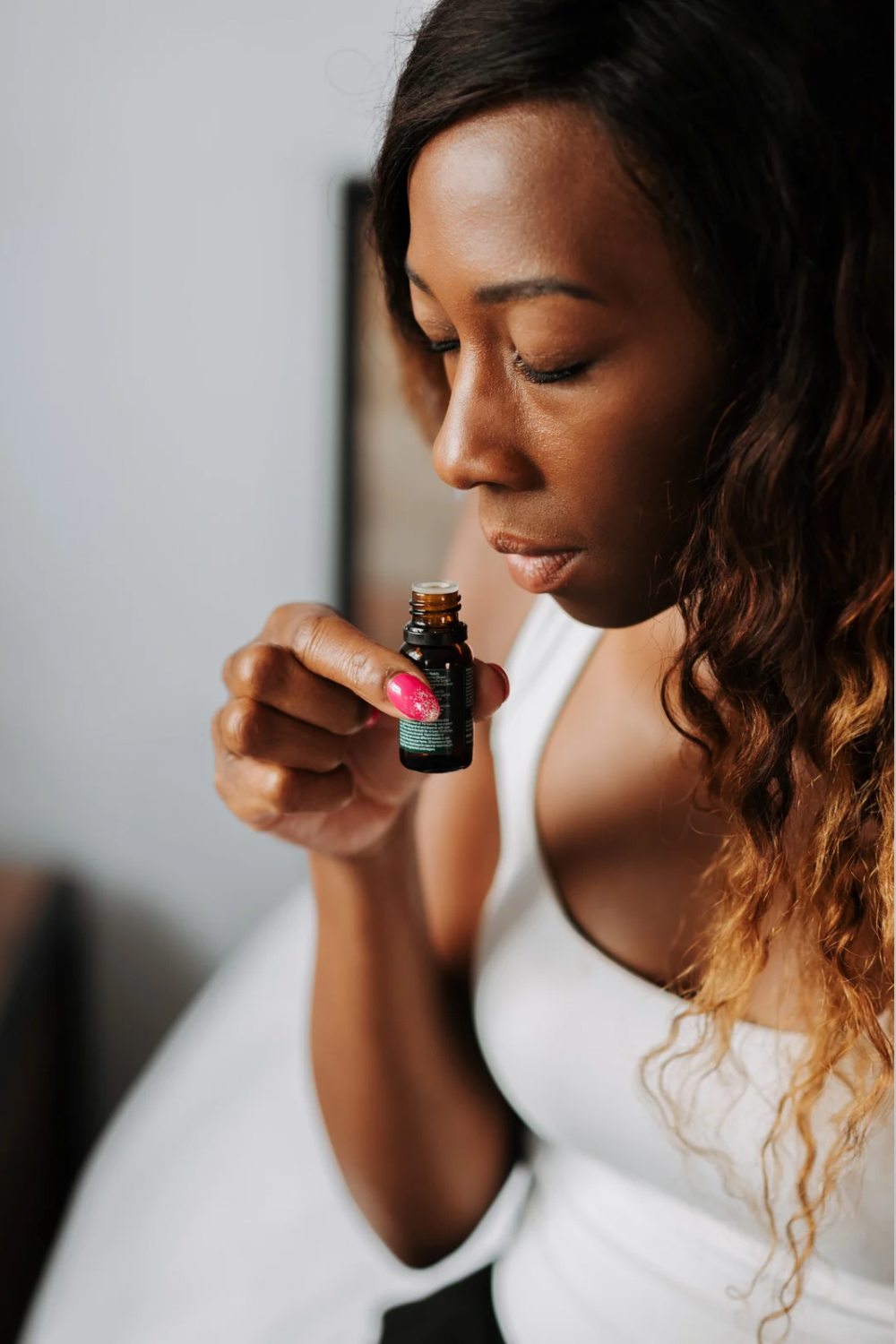5 Essential Oils That Can Cause Allergies

Surprising Allergens: 5 Essential Oils That Could Trigger Your Allergies
Imagine this scenario: you’re going about your day, enjoying the soothing aroma of your favorite essential oils. But suddenly, your body reacts in a way you never expected – allergies. Surprisingly, some of the very oils that are meant to provide relaxation and wellness could be triggering your allergies. In this article, we delve into the world of essential oils to uncover the top 5 unexpected culprits that may provoke allergies.

Lavender Essential Oil
Lavender, often hailed as the epitome of relaxation and tranquility, may not be as soothing as we once believed. While its gentle scent may initially put you at ease, for some individuals, lavender essential oil can actually trigger allergies. Yes, you read that right – the very oil that is synonymous with calmness could be causing your body to react in unexpected ways.
For those who suffer from allergies, encountering lavender oil can lead to a range of uncomfortable symptoms. These may include sneezing, itching, watery eyes, and even difficulty breathing. It’s crucial to understand that allergies can vary greatly from person to person, and while many individuals find lavender oil to be a safe and enjoyable fragrance, for others it can be a potential allergen.
So why does lavender oil, with its reputation for relaxation, have the potential to trigger allergies? Well, it all comes down to the complex makeup of this essential oil. Lavender contains a compound called linalool, which is known to be a common allergen. When this compound comes into contact with sensitive individuals, it can set off an immune response, resulting in the typical allergy symptoms.
It’s important to note that lavender oil allergies are relatively rare compared to other essential oil allergies. However, if you have a known sensitivity to linalool or have experienced allergic reactions to other fragrances in the past, it’s wise to exercise caution when using lavender oil. Consider performing a patch test on a small area of your skin before applying it more liberally or using it in a diffuser.
Eucalyptus, with its distinctive aroma and soothing properties, is often associated with clearing congestion and providing relief for respiratory issues. However, it’s important to note that eucalyptus oil can also be a potential allergen for some individuals.
While eucalyptus oil is generally safe when used properly and in moderation, it contains a compound called eucalyptol that can trigger allergic reactions in sensitive individuals. Symptoms may include skin rashes, itching, redness, and even difficulty breathing. It’s crucial to be aware of these potential risks, especially if you have a known allergy to eucalyptus or have experienced adverse reactions to other essential oils in the past.
It’s worth mentioning that eucalyptus oil is commonly found in various personal care and household products, such as cough drops, chest rubs, and cleaning sprays. These products may unknowingly expose you to eucalyptus oil, leading to potential allergic reactions. It’s always a good idea to read product labels carefully and be mindful of the ingredients used, particularly if you have known allergies.

Peppermint Essential Oil
Peppermint oil contains several compounds, including menthol, that give it its characteristic smell and therapeutic qualities. However, these same compounds can also trigger allergies in some individuals. If you’re prone to allergic reactions, it’s crucial to exercise caution when using peppermint oil.
One of the primary allergenic components of peppermint oil is limonene, a naturally occurring compound found in citrus fruits and many essential oils. Limonene can cause skin irritation and allergic contact dermatitis in sensitive individuals. If you notice any redness, itching, or swelling after applying peppermint oil topically, it’s best to discontinue use and consult a medical professional.
In addition to its potential for skin reactions, inhaling peppermint oil vapor may also pose a risk for those with respiratory allergies. The strong fragrance of peppermint oil can irritate the nasal passages, triggering symptoms such as sneezing, coughing, and congestion. Individuals with conditions like asthma or hay fever may be particularly susceptible to these effects.
However, it’s important to note that not everyone will experience allergic reactions to peppermint oil. Many people safely enjoy its aroma and potential benefits without any adverse effects. As with any essential oil, individual sensitivity can vary greatly, and it’s crucial to listen to your body and discontinue use if necessary.

Tea Tree Essential Oil
Tea tree oil, with its strong scent and potent properties, is often hailed as a versatile solution for various ailments. From skin issues to respiratory problems, this essential oil has gained popularity for its potential healing effects. However, just like with any other essential oil, tea tree oil may not always be the antidote you need, especially if you have allergies.
While tea tree oil is generally regarded as safe and well-tolerated by most people, it has the potential to trigger allergic reactions in some individuals. These reactions can range from mild to severe, depending on the person’s sensitivity. Common symptoms include skin irritation, redness, itching, and swelling.
One of the primary factors that make tea tree oil a potential allergenic substance is its complex chemical composition. It contains numerous compounds, including terpenes like limonene and eucalyptol, that can cause sensitization and allergic reactions in susceptible individuals. Additionally, the purity and quality of the oil can also play a role in its allergenicity, as impurities or contaminants may exacerbate the risk of an allergic response.
It’s important to note that tea tree oil allergies are relatively rare compared to other allergens. However, if you suspect that you’re sensitive to this essential oil, it’s crucial to exercise caution. To minimize the risk of adverse reactions, consider performing a patch test before using tea tree oil topically. Apply a small amount of diluted oil to a small area of your skin and observe for any negative reactions within 24 to 48 hours. If you experience redness, itching, or swelling, it’s best to avoid using tea tree oil altogether.
Citrus Oils: A Hidden Source of Allergenicity
When we think of citrus oils, we often imagine the refreshing scent of oranges, lemons, and grapefruits. These oils are commonly used in everything from cleaning products to personal care items, due to their natural fragrance and various benefits. However, what many people may not realize is that these seemingly harmless oils can also pose risks for individuals with allergies and sensitivities.
Citrus oils, such as lemon, orange, and lime, are known to contain allergenic compounds, including limonene and linalool. These compounds are responsible for the distinct aroma of citrus fruits but can also trigger allergic reactions in susceptible individuals. While allergies to citrus oils are less common compared to other allergens, they can still affect some people, leading to symptoms like skin irritation, respiratory issues, and even headaches.
It’s important to note that the allergenicity of citrus oils can vary depending on their concentration and purity. Essential oils, including citrus oils, are highly concentrated extracts obtained from the peels or rinds of fruits. The manufacturing process can impact the purity of the oil and the presence of potential allergens. Contaminants or adulterants in citrus oils can exacerbate allergic reactions and cause additional health concerns.
For individuals with known allergies or sensitivities to citrus fruits, it’s crucial to exercise caution when using products that contain citrus oils. This includes checking ingredient labels of personal care items, cleaning supplies, and even scented candles. If you’re uncertain about the potential allergenicity of a specific citrus oil or product, consulting with a healthcare professional or allergist is recommended. They can provide guidance based on your specific health condition and help determine whether using citrus oils is safe for you.
Navigating the potential pitfalls of citrus oils involves being mindful of their presence in various everyday products. Opting for fragrance-free alternatives or products that use natural, hypoallergenic ingredients can be a safer choice for individuals with allergies or sensitivities. Additionally, conducting a patch test before using a new citrus oil product can help identify any adverse reactions before full exposure.

